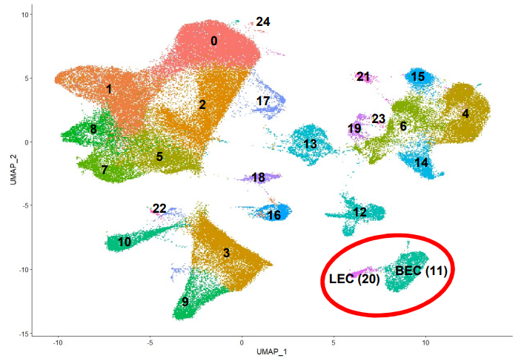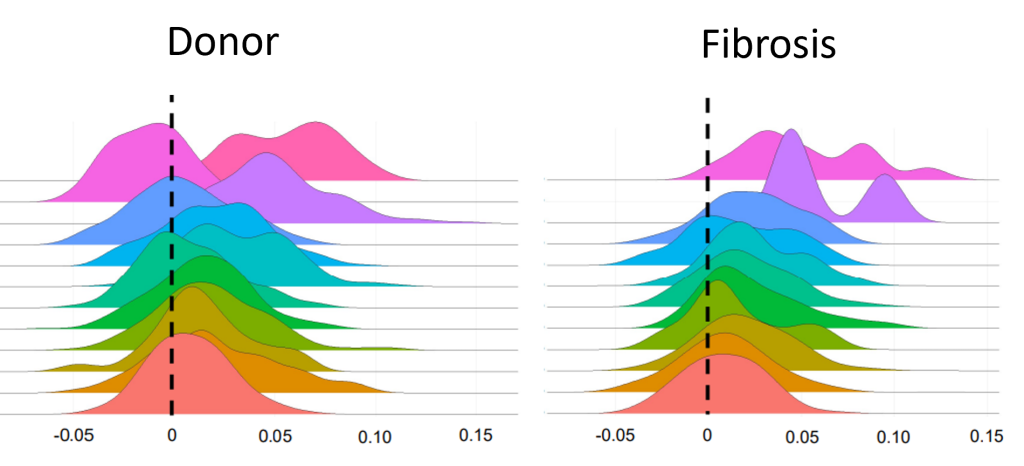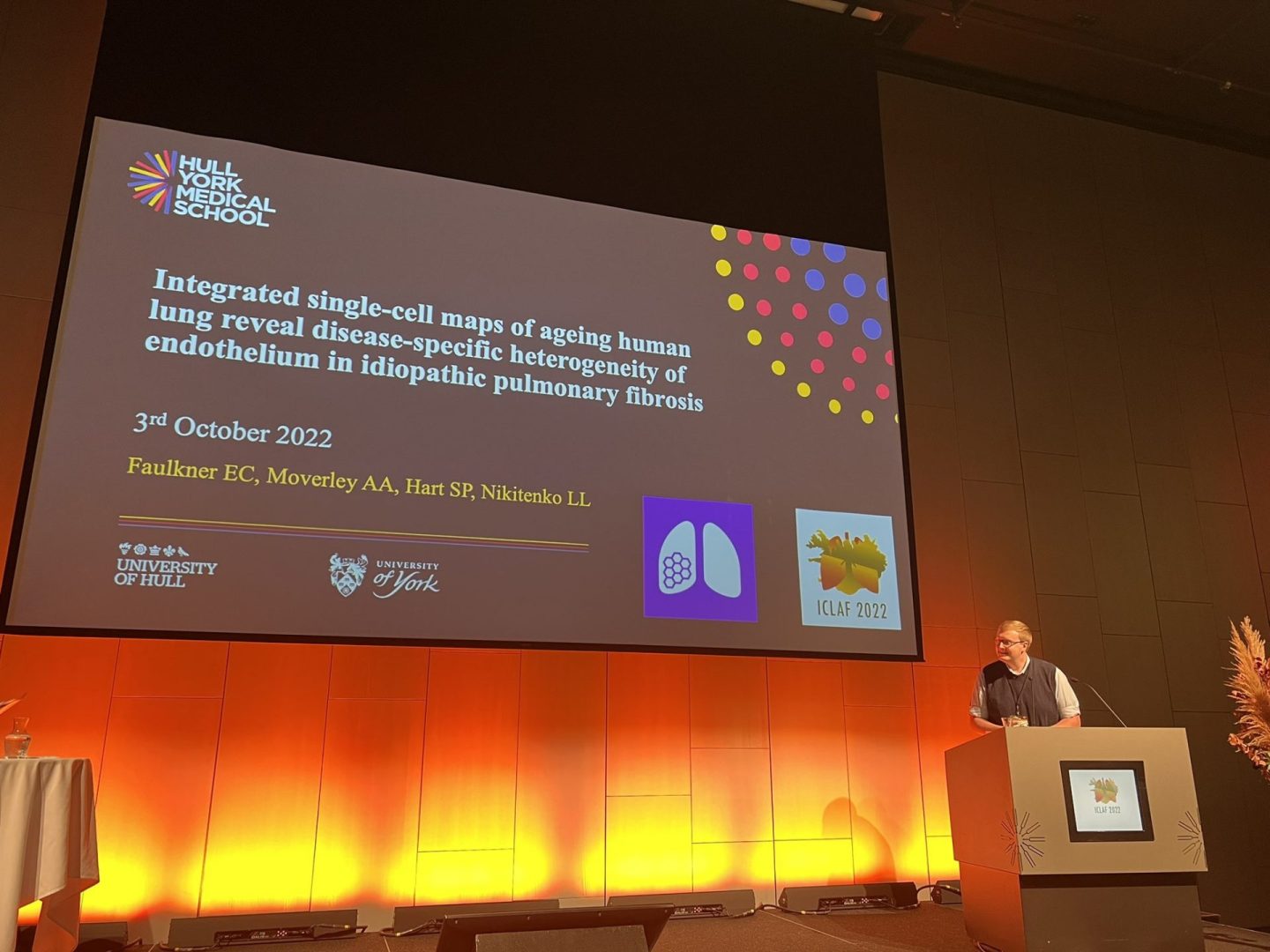The Endothelial Cell Biology in Health and Chronic Disease Research Group led by Dr. Leonid Nikitenko at the University of Hull has utilised High Performance Computer (HPC) Viper. Viper enabled the discovery of previously underappreciated degree of diversity of endothelial cells in the ageing human lungs and lungs from patients with idiopathic pulmonary fibrosis (pre-print publication: https://www.medrxiv.org/content/10.1101/2022.03.08.22272025v1). Endothelial cells form a monolayer on the internal surfaces of blood and lymphatic vessels. They perform a vital role in the lung by facilitating gas exchange (blood vessel endothelial cells) or draining excess tissue fluid (known as lymph) from the lung (lymphatic endothelial cells), enabling the vital organ to function.
The research group identified 17 subtypes of ageing human lung endothelial cells, 9 of which were novel. The analysis using Viper provided detailed information on how the gene expression of all identified cell subtypes is altered and hence may be contributing to disease in elderly. This information facilitates a deeper understanding of cell type specific diversity in chronic disease and facilitates patient tailored therapy in the future.

This study is an excellent example of how Viper is an invaluable asset in deconvoluting complex large-scale datasets in Biomedical research. The detailed analysis and discovery would not have been possible using conventional or local computational systems due to the size of the data sets (expression data from 114,000 + cells from 18 lung samples). Viper provided the necessary processing memory requirements (random access memory; RAM) for the study, enabled the analysis to take place in days rather than weeks. The team at Viper provided the PhD student, Eamon Faulkner with all the necessary coding support including Viper commands and analysis language of choice (R – Seurat). This study established a platform for analysis of single cell sequencing data from human clinical samples provided by NHS teaching hospitals in the area for the first time, as Viper continues to gain usership from the wider University.

More information about the publication “Integrated single-cell RNA sequencing analysis reveals alterations of ageing human lung endothelium heterogeneity in idiopathic pulmonary fibrosis” can be found at https://www.endothelial-cell.com/news/pre-print and https://www.endothelial-cell.com/activities/integrated-single-cell
Eamon Faulkner, PhD Student,
The Endothelial Cell Biology in Health and Chronic Disease Research Group
In October 2022 I was able to present my research at the International Congress on Lung and Airway Fibrosis (iCLAF) in Iceland. Presenting my work at this most prestigious in the field international meeting was of great value to my research and provided me the opportunity to discuss my current findings with leaders in the IPF field.
 .
.
Reporting our findings in my talk also led to an enthusiastic discussion session regarding the potential role of variability in ageing vessel lining cells to IPF and was an invaluable experience. This is of particular importance for my PhD studies, as I approach writing up, submission of my thesis, and subsequent viva. Furthermore, the discussions with researchers from other groups are most likely to lead to establishing international collaborations in the nearest future. None of this would have been possible without the support of the HPC Viper team.

